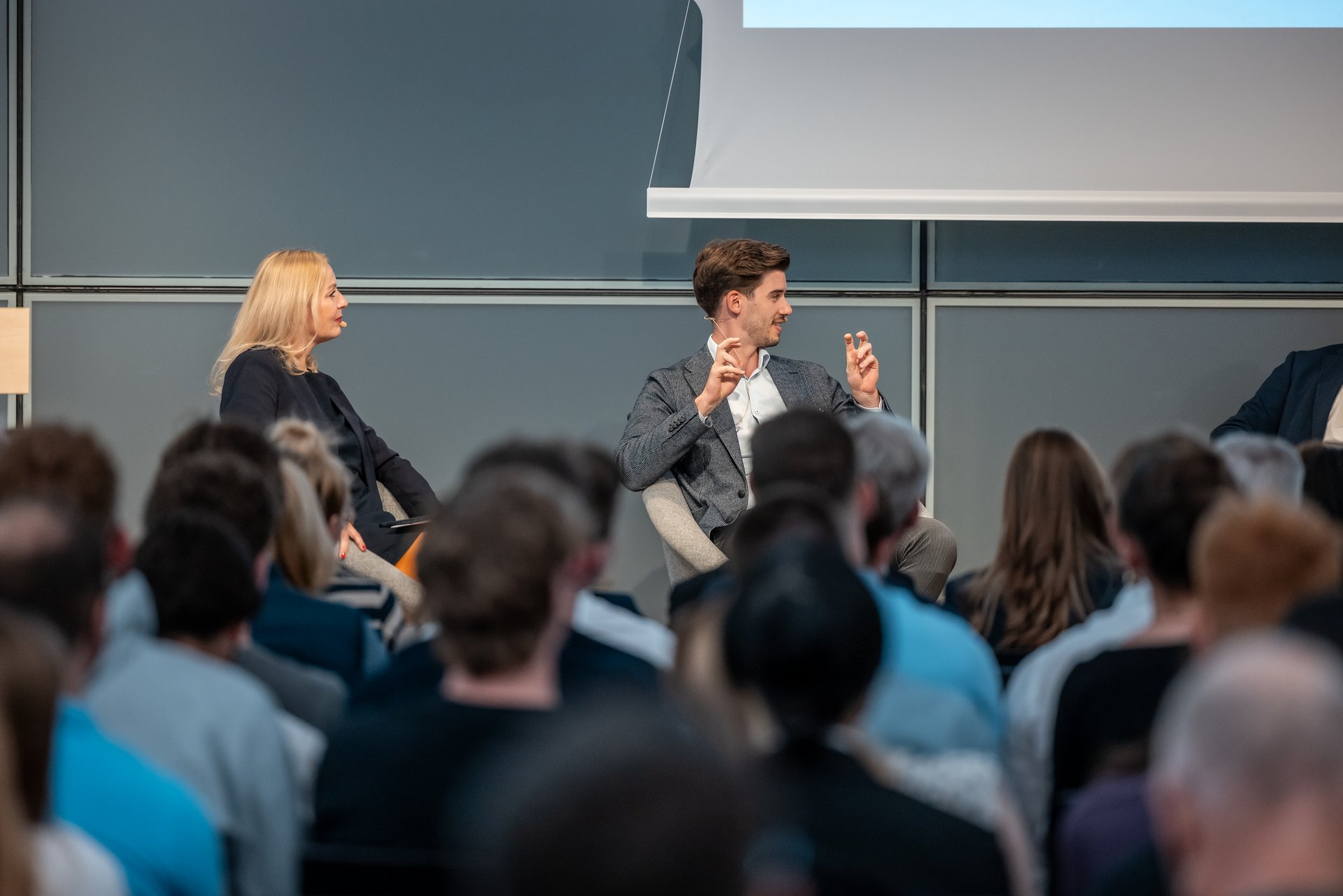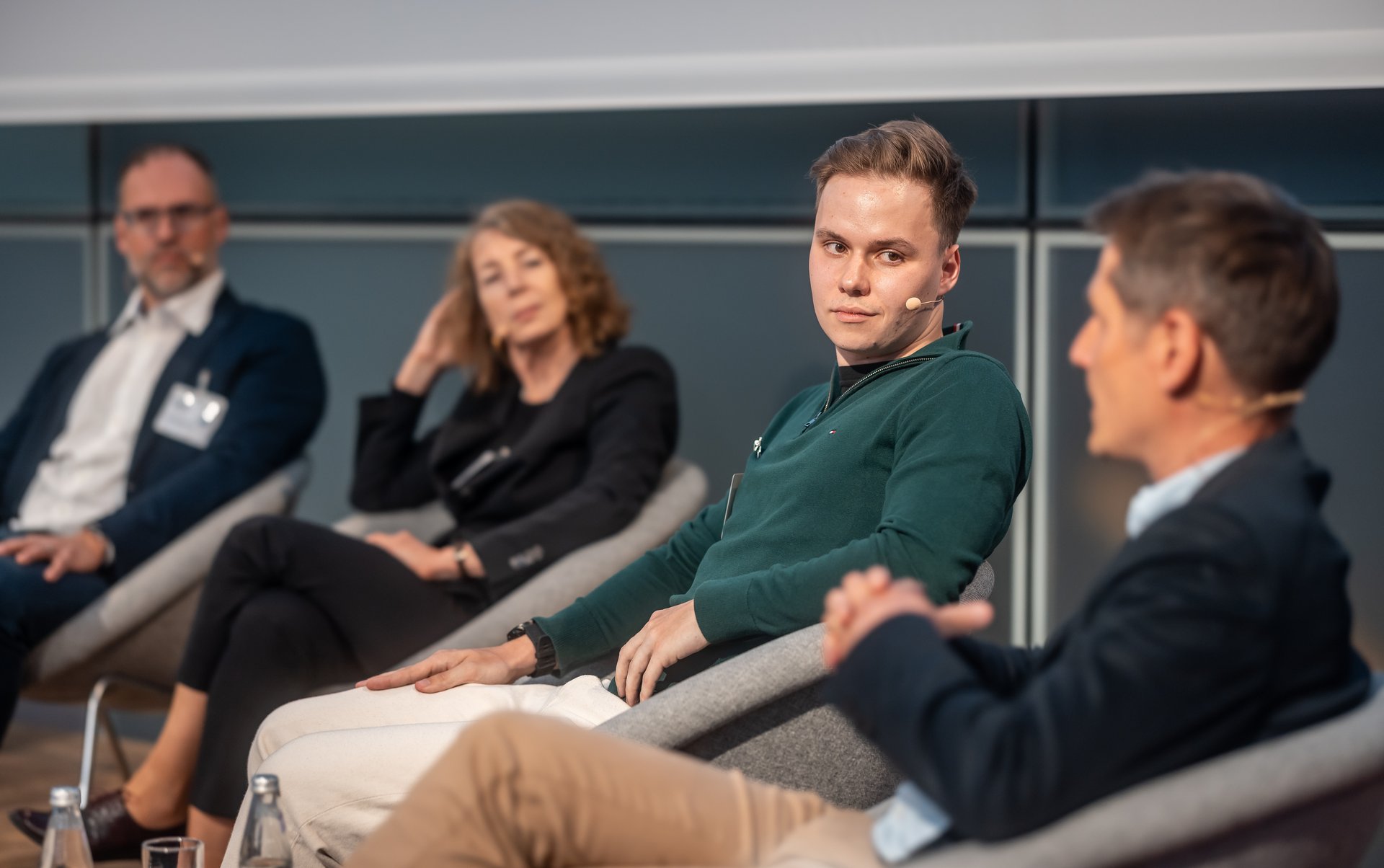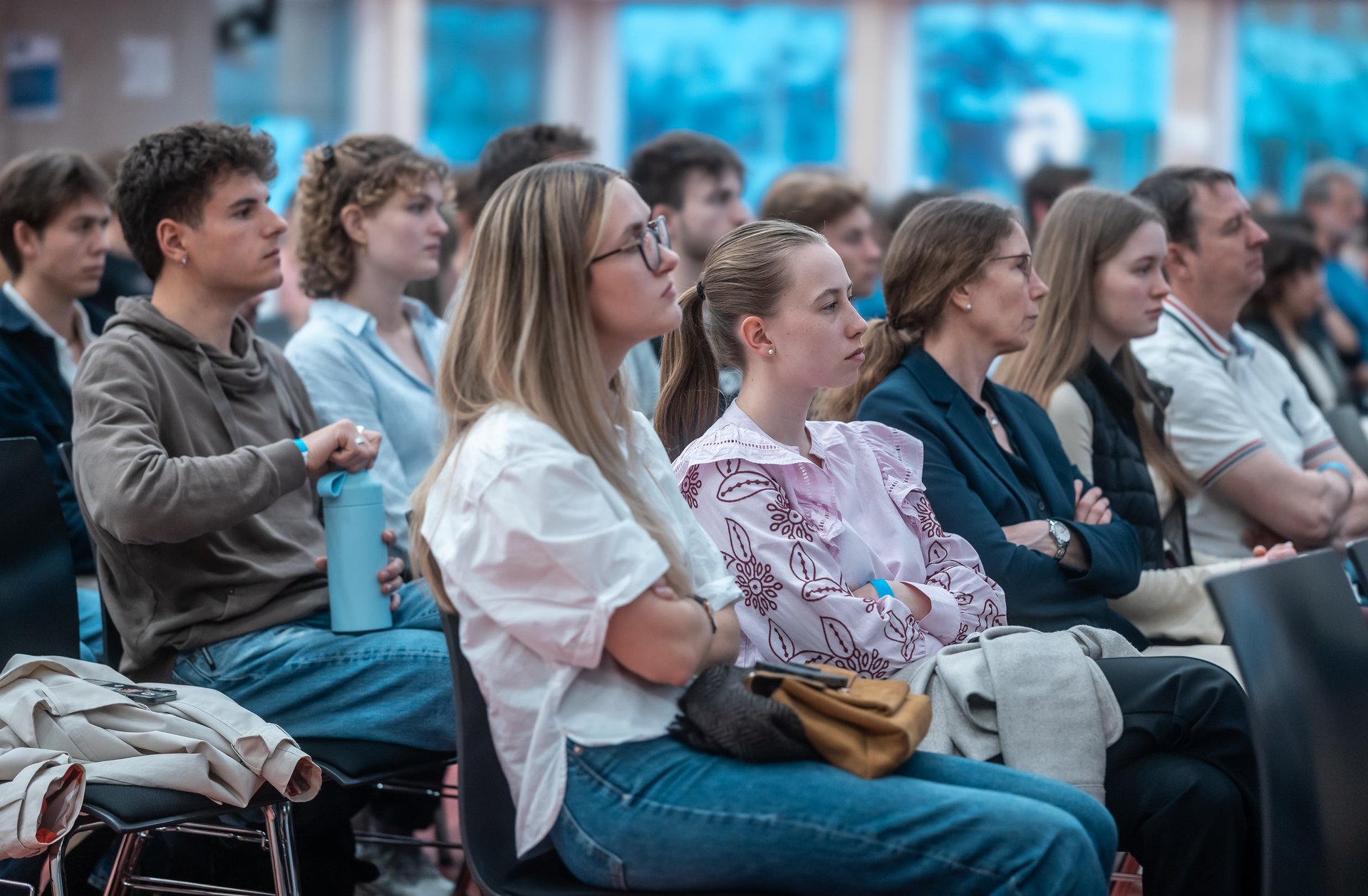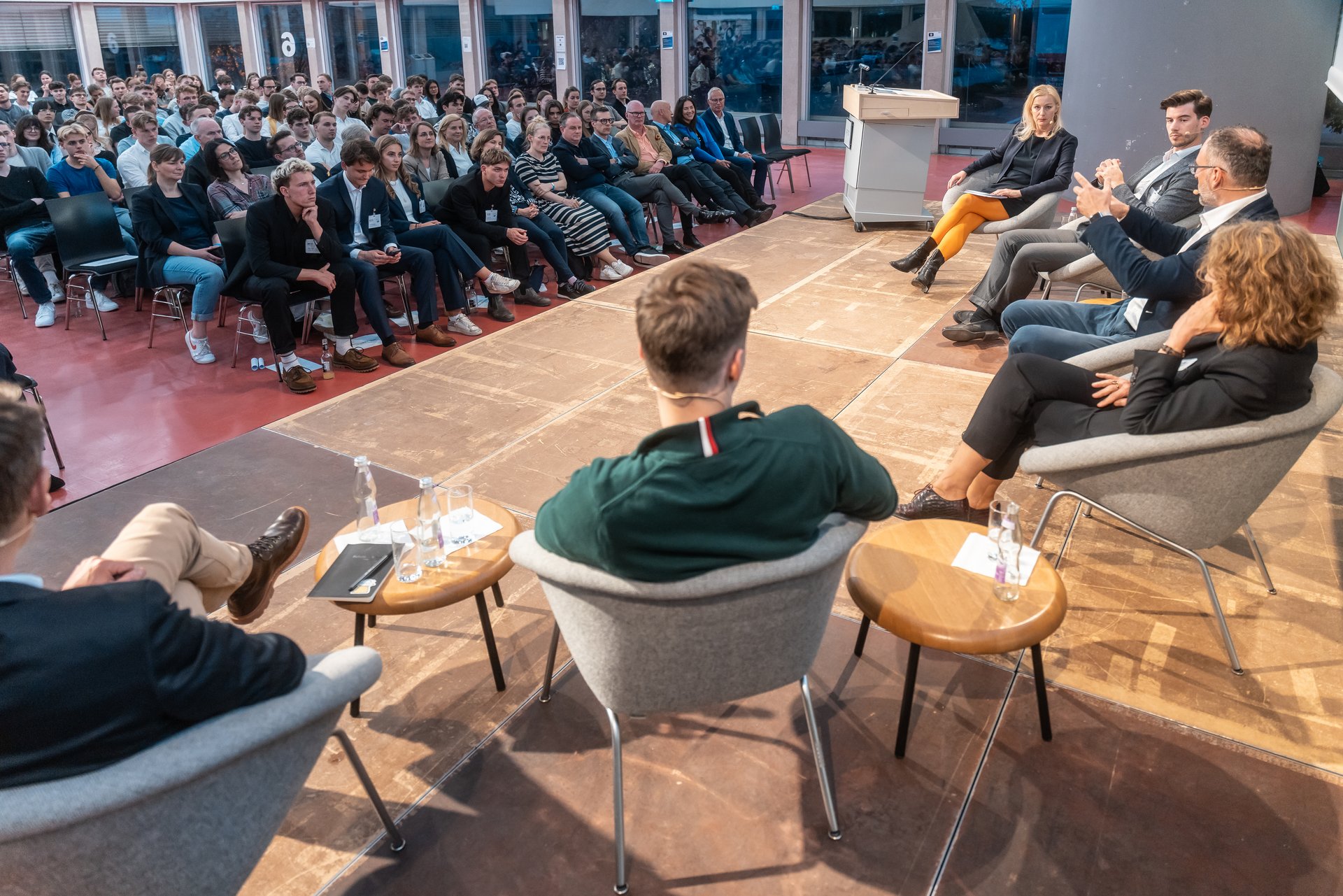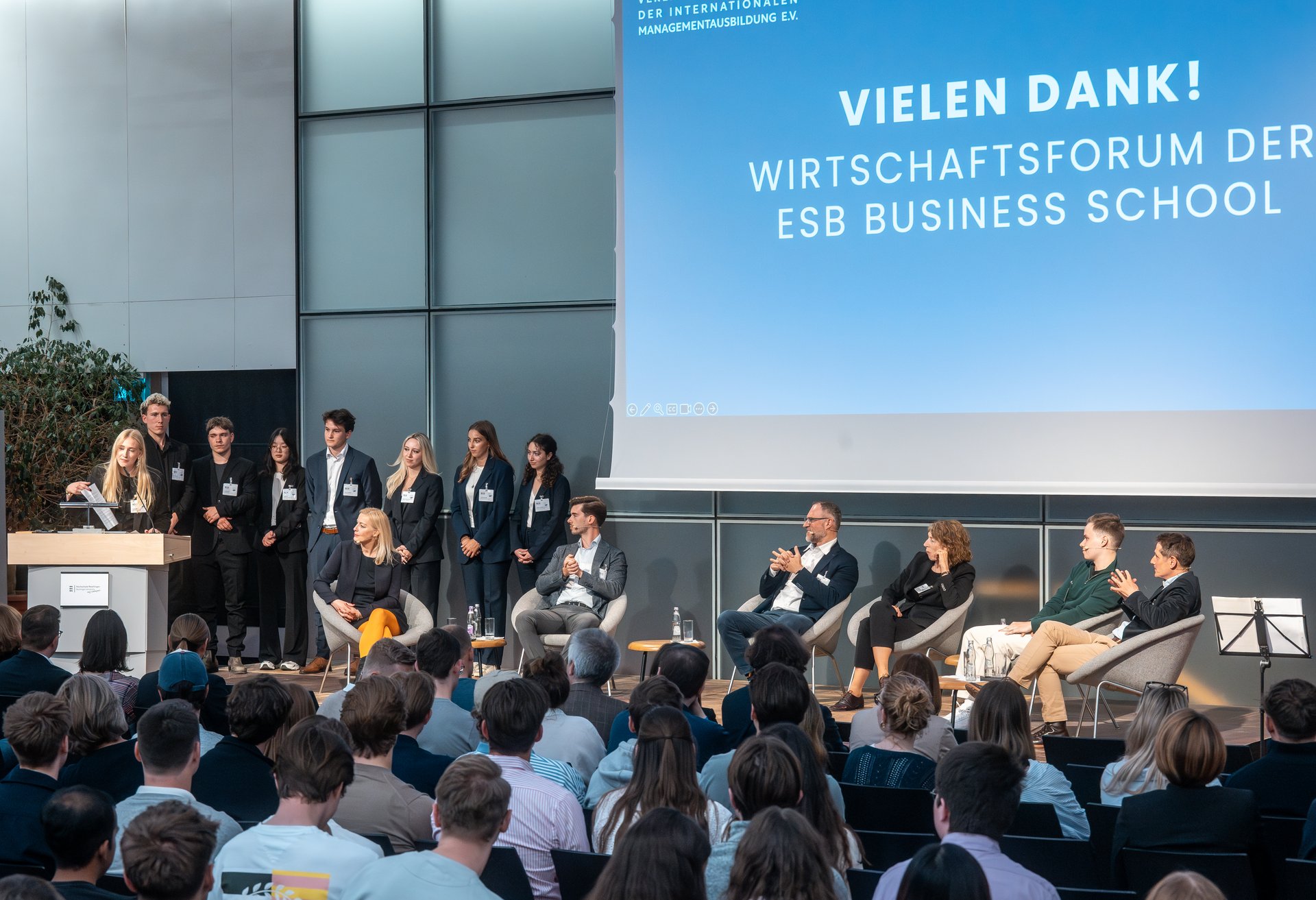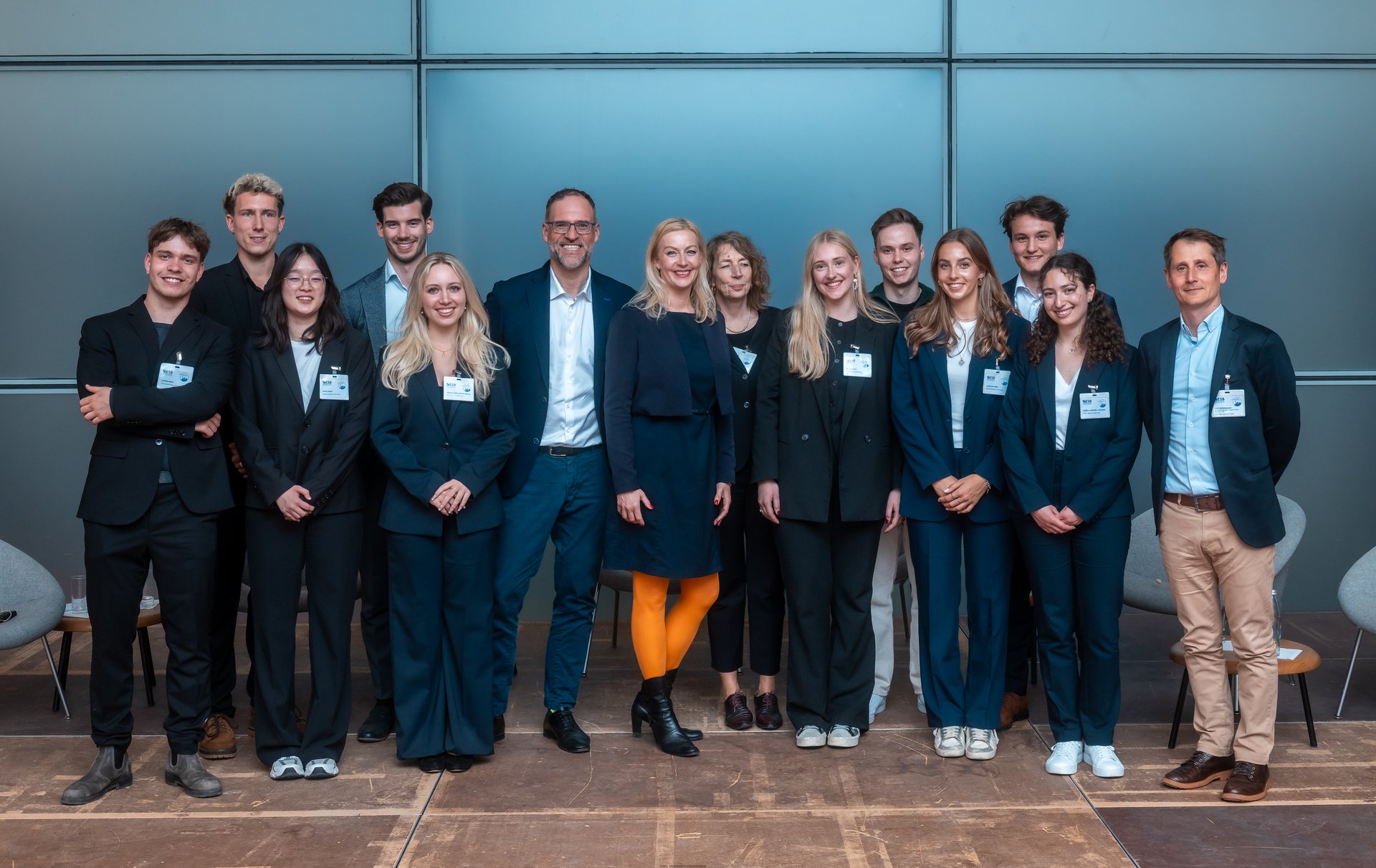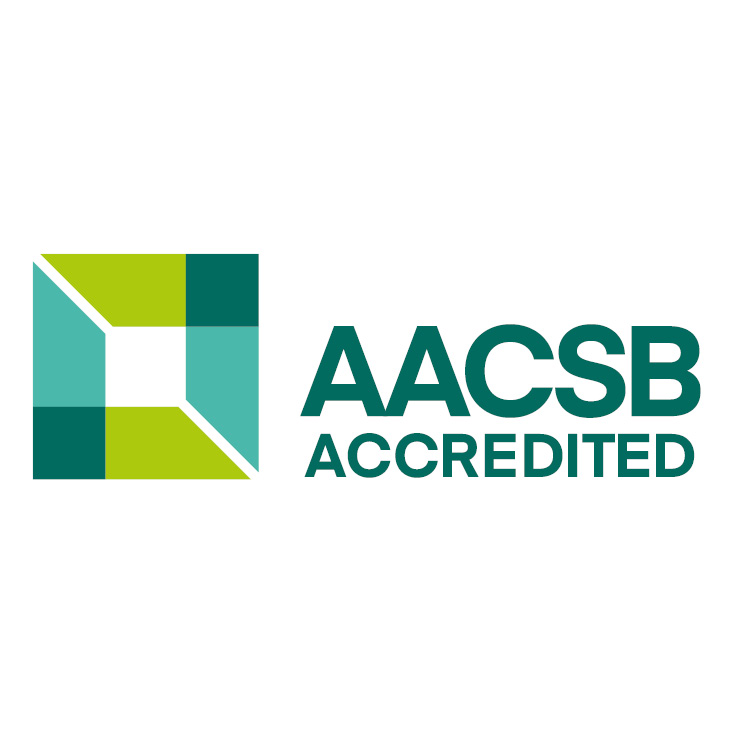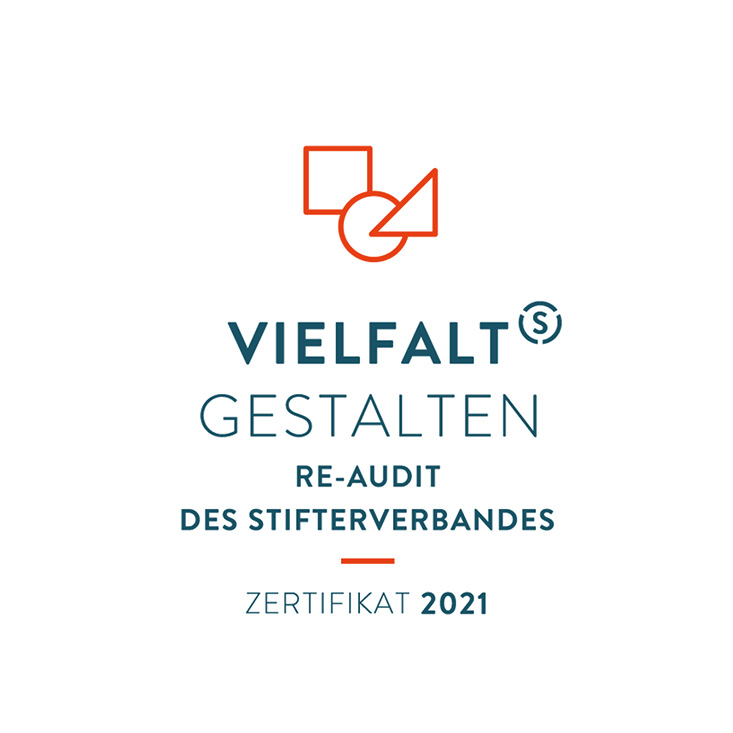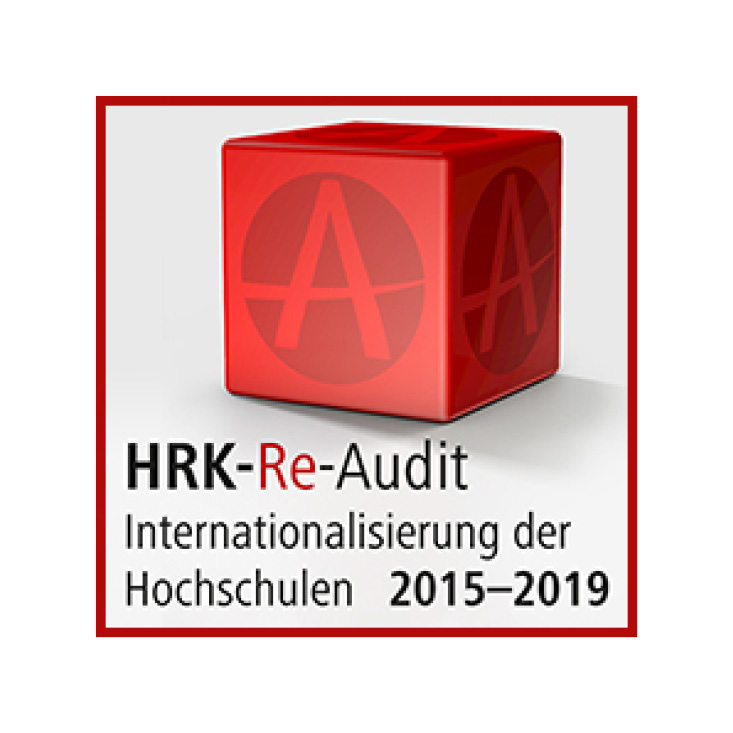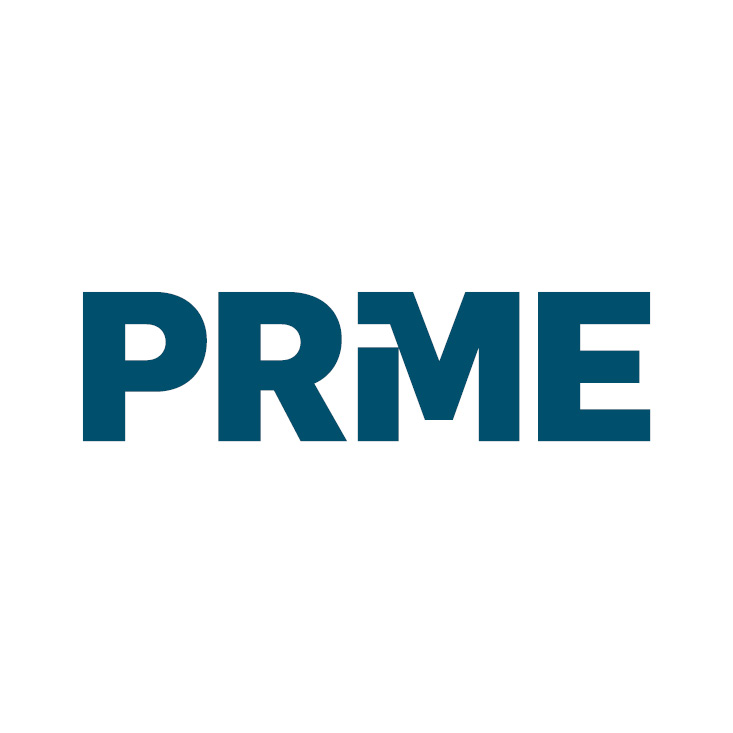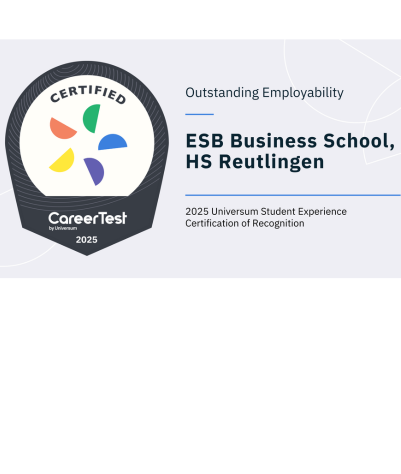New Work: More than just home office and table football

What is New Work? The five speakers at the 29th ESB Economic Forum agreed on one thing: there is no single, universally accepted definition of this buzzword. What is certain, however, is that the students of ESB Business School, who organise the annual public panel discussion at Reutlingen University, will benefit from the new world of work. It offers them greater flexibility and a stronger sense of purpose. Yet not everyone stands to gain equally from New Work.
During the pandemic, working from home became a new, seemingly irreversible standard for many employees-or so it was thought. Recent developments show that companies are now bringing their staff back to the office. Does this mean New Work is dead? Certainly not, as home office is only one aspect of New Work. As the lively two - hour discussion in the packed auditorium demonstrated, New Work is multifaceted.
A succinct definition was provided by Professor Arjan Kozica, Vice President of Reutlingen University, in his opening remarks: “New Work makes work better.” The originator of the term, social philosopher Frithjof Bergmann, once described work as a mild illness to be cured by shorter working hours. Kozica vehemently disagreed: work is by no means an illness, but rather a form of social cooperation that contributes to democracy: “New Work stands for a human-centred, fair working environment.”
It is also about creating meaning, autonomy, flexibility, and security, added Filip Weidenbach, HR Project Manager for New Work Practices at software giant SAP. New Work, he stressed, is not about slacking off - quite the opposite: “It is often the most highly motivated employees who are interested in New Work.” Companies benefit from this too, through improved quality and greater efficiency. However, New Work requires rules-and time. The transformation can take one to three years before managers fully adapt to their new roles.
Carlos Frischmuth cautioned against hastily replacing established structures with trendy co-working spaces. In his book “New Work Bullshit”, the Managing Director at the personnel services provider Hays, the personnel services provider, offers a critical take on the buzzword: “New Work is a projection screen for expectations that can sometimes lead to disappointment.” Instead of empty promises, companies should offer credible and sustainable options - these may look different for every employee. Some may value a flexible workspace, others a high salary, and still others rapid career progression.
There are many prejudices surrounding New Work - such as the notion that Generation Z is lazy and therefore particularly drawn to it. With David Döbele and Samuel Casha, the panel included two clear counterexamples. Casha, a student at ESB Business School and founder of the cloud software start-up WRING, recently abolished unlimited home office for his seven employees: “A Zoom call cannot replace face-to-face meetings.” For him, returning to the office is a return to normality, not a rejection of New Work.
David Döbele, one of the best-known business influencers in the German-speaking world with over 200,000 followers, advises ambitious students seeking entry into fields such as investment banking through his career coaching platform Pumpkincareers. For Döbele, working 80 hours a week is normal - but not a requirement, nor is it incompatible with New Work. Each employee should be able to decide for themselves how much New Work suits them. Döbele rejects the criticism that he is leading his young clients straight into burnout. The overload he observes is mainly due to the abundance of options and constant comparison with others. “The work itself hasn’t actually become harder.”
Dr. Josephine Hofmann calls this the “Tinder moment”: just as people on dating platforms fear missing out on the perfect partner, the multitude of options in the job market leads to inflated expectations. As head of the Collaboration and Leadership Research Team at the Fraunhofer Institute for Industrial Engineering IAO, she notes that the debate about New Work is often reduced to mobile working and the abolition of hierarchies. However, she does not share Carlos Frischmuth’s view that only knowledge workers benefit from New Work. Hofmann has led several projects, such as making shift schedules more flexible in healthcare. She adds: “Not everyone is keen on New Work.” But New Work can contribute to productive work that is fulfilling and healthy. “Table football alone won’t achieve that.”
About the ESB Business Forum
The moderator of the ESB Business Forum 2025 was Carmen Hentschel, an expert and consultant on digitisation and future trends. The public event was organised for the 29th time by students of ESB Business School. This year’s core team members were Vanessa dos Santos Keller, Jan Sallwey, Max Hufschmidt, Marit Lemke, Laura Mattern, Ludwig Knab, Isabella Brosel-Carlson, and Hanyi Shen.
